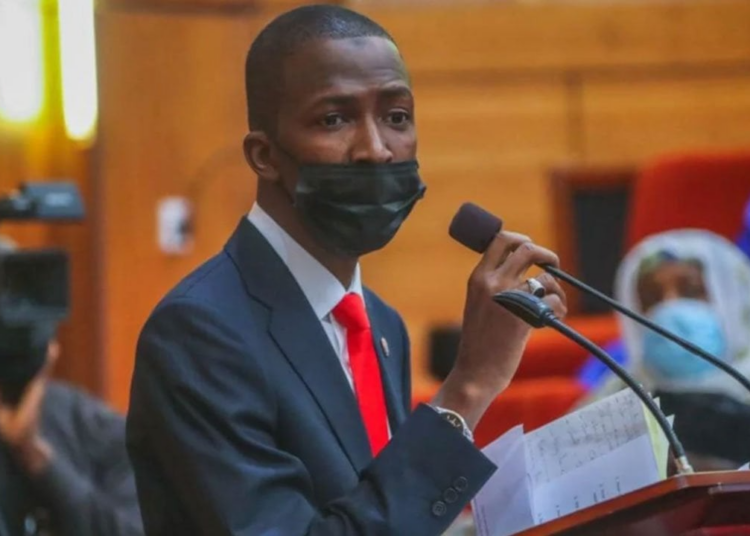As the nation transits to a new government, the polity is heating up with altercations between the anti-graft agency, the Economic and Financial Crimes Commission (EFCC) and some politically exposed persons. The unfortunate game of wits is apparently not doing the nation any good.
Some of the governors, especially the outgoing ones, anxious that the agency will investigate and prosecute them, are whipping up public sentiments and setting themselves up as victims of a witch hunt. The whole point, it seems, is to undermine the agency’s credibility.
In a drama reminiscent of “The Guilty Are Afraid”, the 1957 thriller by the British writer, James Hadley Chase, some of these public officers, especially governors, are reportedly making arrangements to flee the country in order to evade arrest and possible prosecution. We have been here many times before.
It is important to stress that the EFCC would not have come into existence if the political class had kept on the straight and narrow. The overwhelmingly manifest corrupt practices among public office holders and the absence of transparency and accountability in governance processes made the policy that gave life to the agency, inevitable.
The accusation and counter-accusation between Zamfara State Governor, Bello Matawalle, and the EFCC after the agency announced that the governor was under investigation for award of phantom contracts and diversion of over N70 billion, gives cause for concern.
The amount in question, if it is correct, is nearly 50 percent of the state’s 2022 budget and could make a significant difference in the lives of the long-suffering people, who in 2021 were listed amongst Nigeria’s poorest and most terrified.
In response, the governor has alleged that the EFCC is after him because he refused to give its Chairman, Abdulrasheed Bawa, a $2 million bribe.
Matawalle’s allegation appears to feed into a groundswell of orchestrated agitation to attack the agency and undermine public confidence, but particularly in the confidence of the incoming government, in the leadership.
We find this disturbing and hope the EFCC chairman will not be deterred by the pushback, but more important, that he would take legal steps to clear his name of this serious charge.
We are not by any means suggesting that the EFCC is a perfect institution and this newspaper will continue to press that like Caesar’s wife, the agency must strive to be above board. We, however, strongly oppose the habit of politicians who tend to use their influence to undermine any public institution that attempts to hold them to account.
They want one law for themselves and another for the rest of society. And they would spare no cost to crush anyone or institution that stands in their way. This obnoxious political army now appears to have drawn the battle line with Bawa.
EFCC Dares Matawalle To Provide Evidence Of $2m Bribe Against Its Chairman
There is a need for restraint. In the midst of the ongoing transition, we know that politicians would like to take advantage, grandstanding and peddling influence. Yet, we cannot permit persons who may have cases to answer to get away from accountability.
Institutions that have the responsibility to act must stand firm and ensure that justice is not only done, but is seen to be done. It is only through a fair and single-minded pursuit of justice that we can ensure that some of the scandalously frightening cases being mentioned are not just meant to embarrass, amuse, or entertain an already weary public, but they are indeed to create deterrence and sanitise the system.
The world is watching – and with keen interest, too. While it would be unfair to tar all politicians with the brush of corruption, however tempting it may be to do so, we believe that those who have served well should have nothing to be afraid of.
And we also believe, to paraphrase, Hadley Chase, that even the fearful who may appear guilty to the onlooker, will be spared the misery of unjustified reputational damage.
We have no reason, at this point, to believe that Bawa’s position is untenable. He should, therefore, be allowed to do his job.





